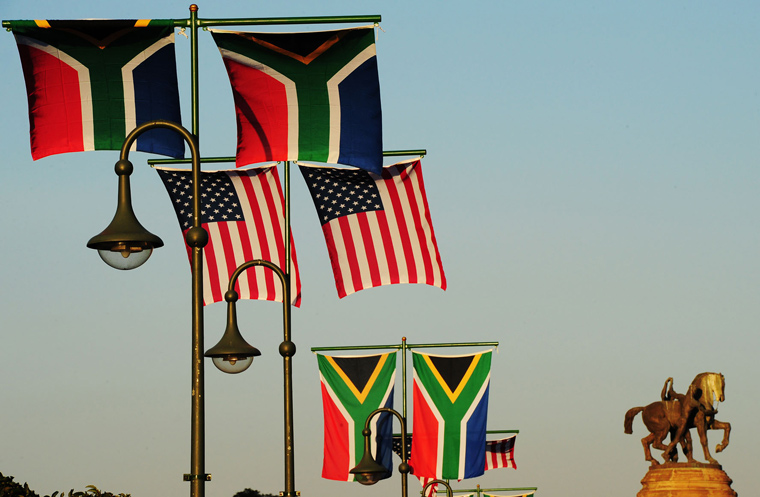In the wake of the International Court of Justices’ (ICJ) landmark ruling on 26 January, two United States congressmen have proposed a bill calling for a comprehensive review of the country’s ties with South Africa, citing concerns over national security.
In the case brought forward by the South African delegation, the ICJ ruled “Israel’s actions in Gaza are plausibly genocidal and […] indicated provisional measures on that basis,” according to a statement released by the Department of International Relations and Cooperation (DIRCO).
The United States made several objections to South Africa’s application, stating that there is unsubstantial evidence to suggest that genocide is taking place.
It should be noted that the US has continued to sell arms to Israel, with arms sales increasing since October 7, 2023. This situation raises ethical dilemmas, potentially implicating the county in acts that could be deemed complicit in genocide.
The bipartisan bill which was introduced by US Republican congressman John James and Democratic Party congressman Jared Moskowitz noted the ANC-led government’s stance on Hamas as a concern to national security.
The Bill highlighted South Africa’s historical ties with Hamas, and the longstanding connections with the Palestine Liberation Organisation, extending back to Nelson Mandela’s presidency.
Also noted as concerns to national security were South African ties with both Russia and China, as well as issues surrounding state capture, the ongoing energy crisis, and the recent cholera outbreak.
In a statement released after the introduction of the new legislation, Republican congressman John James said, “South Africa has been building ties to countries and actors that undermine America’s national security and threaten our way of life through its military and political cooperation with China and Russia and its support of U.S.-designated terrorist organisation Hamas.”
This recent development occurs against a backdrop of escalating tensions between South Africa and the US which became evident in their conflicting positions on the Russia-Ukraine conflict.
The Bill criticises Pretoria for what it sees as a departure from its publicly declared policy of non-alignment, a stance that drew scrutiny during the Russia-Ukraine conflict.
For many this proposed bill could be seen as evidence of political retaliation against South Africa in response to the ICJ ruling. However, DIRCO spokesperson Clayson Monyela predicts that the Bill will go nowhere and insists that relations with the US are “warm, cordial, strong, and mutually beneficial,” according to News24.
Retaliation as a result of the ICJ ruling is unlikely, according to international relations expert and political scientist Dr. Sithembile Mbete. “We are still one of the biggest payers into the African Union on the continent, and the West still wants to trade with us.”
“If they’re going to try and punish South Africa for exercising its rights in terms of the Genocide Convention, that would have repercussions on those countries, as Europe is discovering after trying to sanction Russia over the war in Ukraine,” said Mbete.
The bill’s bipartisan nature suggests potential momentum, however, the war in Palestine continues to be a divisive issue across the West.
While the proposed bill casts a shadow over South Africa-US relations, DIRCO’s confident dismissal reflects little concern for maintaining these relations.
Read more: https://explain.co.za/2024/01/23/south-africa-vs-israel-at-the-icj-what-comes-next/




